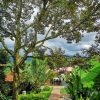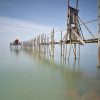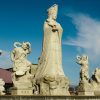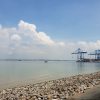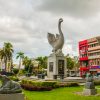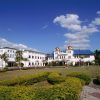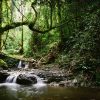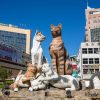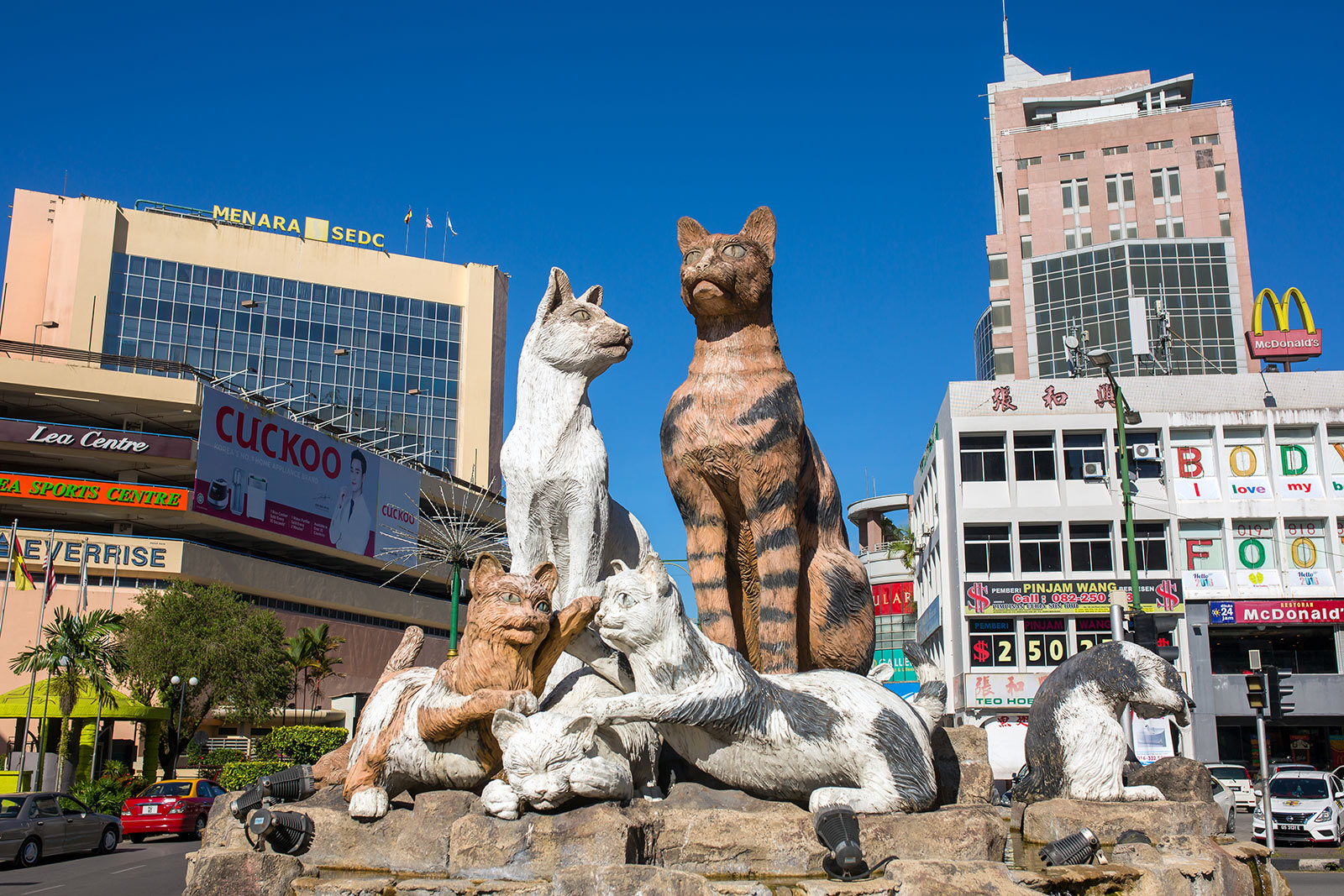
Greening Kuching City North Towards Sustainability
Published on March 11, 2016 | by wwf.org.my
Each time fresh graduate, Flora Eliza Saban, drives past Jalan Stadium in Petra Jaya, a smile curves up on her face at the sight of her little ‘babies’ growing taller and greener, and this fills her with pride.
Seven months ago, the 23-year fresh graduate helped to plant five trees along Jalan Stadium as part of Kuching City North Hall’s (DBKU) efforts in making its jurisdiction greener in conjunction with Kuching City Day celebration.
The tree planting activity also marked the launching of DBKU’s participation in the global competition, Earth Hour City Challenge (EHCC) 2015/2016.
Over 100 people comprising DBKU Mayor Datuk Abdul Wahap Abang Julai and his staff, civil servants from other agencies, WWF-Malaysia and students from Universiti Malaysia Sarawak lent their hands to plant a total of 738 trees in one morning.
This activity augurs well with the Garden City concept and more importantly, the trees planted are expected to help reduce roughly 738 tonnes of CO2 equivalent over the lifespan of the tree.
Since 2013, WWF is challenging cities around the world to do more than just turning off their lights for Earth Hour. The EHCC was introduced, which is a year-long competition among cities to promote renewable energy use and prepare for climate change.
“The tree planting activity was the first for me and I do not have green fingers. I’m so glad to see the trees that my friends and I planted last July are now growing very well. I feel proud that I contributed in greening the city and doing my part to help address climate change,” said Flora.
Another tree planting participant, Deborah Andrew, 27, said that the activity is a good effort to expose citizen of Kuching on the importance of having more trees as a means to address climate change.
She hoped that more city dwellers would do their little parts – from planting more trees at their back yard or adopting trees in public areas to using less plastic bags while shopping – as these will go a long way in making the city greener, as climate change is certainly a threat of the 21st century.
DBKU is one of the four cities in Malaysia taking part in the EHCC 2015/2016. The other three are Petaling Jaya, Malacca and Penang. Worldwide, a total of 123 cities from 21 countries are taking part and cities will be judged based on the measures taken to promote environmental sustainability. The result of the challenge is expected to be announced in April or May 2016.
In line with DBKU’s participation in EHCC 2015/2016, the city hall has pledged during Earth Hour 2015, to plant three trees for every tree felled in its jurisdiction and to stop using Styrofoam food and drink containers in its official events.
Tree planting is one of the many green initiatives embarked by DBKU not just for EHCC but for the long term as part of its Clean Beautiful and Safe (CBS) Enhancement Plan (2013-2017).
DBKU is not new to making the city greener and more liveable for all.
As part of its CBS Enhancement Plan, the city hall has among others, embarked on a lighting transformation programme where existing streetlights were replaced with LED types along Main Bazaar, Gambier Street and Kuching Esplanade – the city’s historical and heritage area.
It is notable that see that DBKU is committed in implementing energy management systems within its existing operations as part of its commitment to reduce energy consumption and operating costs.
Another source of pride for DBKU is its river rehabilitation project where DBKU seeks to enhance the outlook of Kuching’s natural heritage, through its Sarawak River cleaning programme that is carried out daily.
Started since 1993, this river cleaning programme has been collecting solid waste from the river between 8am and 5pm daily to ensure the city’s main waterway remain clean and scenic. On average, about 30,000 tonnes of waste are collected in the recent years which is a drop from about 120,000 tonnes when the programme started. Effective January this year, this programme has been handed over to Sarawak Rivers Board for implementation.
DBKU also has the Friends of the Environment programme that regularly engages with its residents to create the awareness on proper waste management, river cleaning and other community-based activities so as to increase civic-mindedness and environmental consciousness.
This year Earth Hour will be observed on March 19, Saturday, 8.30pm local time globally.
WWF’s Earth Hour is urging its supporters to shine a light on climate action through the most powerful communication tool of our time – social media. Supporters are invited to take a stand for climate action on their Facebook and Twitter accounts, and they can also promote their commitment to the planet by donating their Facebook feeds to spread climate awareness and action in a few clicks on earthhour.org/climateaction.
Users can also add a custom-made Earth Hour filter to their profile pictures on Facebook and Twitter to show they believe this is our time to change climate change.
